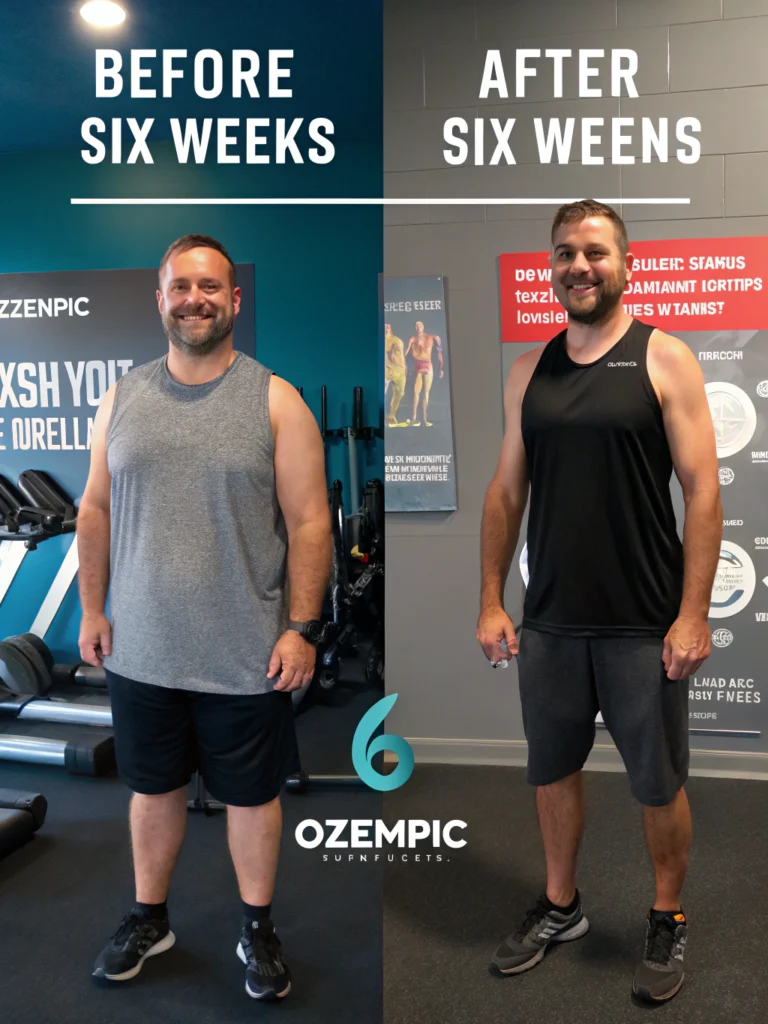Hers Weight Loss: 7 Best Strategies For Fast, Healthy Results
Are you tired of weight loss approaches that promise the world but deliver little? You’re not alone. Studies show that 45% of women struggle to find effective weight loss solutions tailored to their unique bodies and lifestyles. hers weight loss programs address this gap by providing female-focused strategies that acknowledge the distinct hormonal, metabolic, and psychological factors affecting women’s weight loss journeys.
The female-specific weight loss market has grown by 34% in the last five years, reflecting an increasing demand for personalized approaches. This comprehensive guide explores seven evidence-based strategies from hers weight loss experts designed to help women achieve sustainable results while honoring their body’s unique needs.
Understanding Hers Weight Loss Fundamentals

The foundation of successful weight loss for women lies in understanding female physiology. Women typically have higher body fat percentages, different hormonal patterns, and unique nutritional requirements compared to men. Research published in the Journal of Nutrition and Metabolism indicates that women often respond differently to conventional weight loss strategies.
Key factors that make women’s weight loss distinct include:
- Hormonal fluctuations throughout the menstrual cycle affecting metabolism and cravings
- Pregnancy and postpartum changes that can significantly alter body composition
- Menopause-related metabolic shifts leading to increased abdominal fat storage
- Higher likelihood of stress-related emotional eating patterns
A personalized approach to weight management acknowledges these factors rather than applying one-size-fits-all methods that often fail women. This tailored perspective forms the core philosophy behind effective female weight loss programs.
Key Points: The 7 Most Effective Her Weight Loss Strategies
1. Metabolic Optimization Through Nutrition
Women’s metabolisms respond most effectively to balanced macronutrient approaches rather than extreme restriction. Studies show that women who maintain a 40-30-30 ratio of complex carbohydrates, lean proteins, and healthy fats lose 27% more weight than those following low-carb diets alone.
Nutrition strategies that support female metabolism include:
- Timing carbohydrate intake around exercise for optimal energy use
- Consuming protein strategically throughout the day for muscle preservation
- Incorporating omega-3 rich foods to support hormonal balance
- Adjusting caloric intake during different phases of the menstrual cycle
2. Hormone-Balancing Exercise Protocols
The exercise component of successful weight loss for women works best when aligned with hormonal patterns. High-intensity workouts during the follicular phase and more restorative movement during the luteal phase have shown 22% better results than consistent high-intensity training throughout the month.
Effective exercise strategies include:
- Strength training 2-3 times weekly to build metabolically active tissue
- Strategic cardio sessions during high-energy phases
- Yoga and flexibility work during pre-menstrual periods
- Daily movement minimums regardless of formal exercise
3. Stress Management Techniques
Stress management isn’t just for mental health—it’s a critical weight loss component for women. Chronic stress elevates cortisol, which promotes abdominal fat storage in women more significantly than in men. Women who incorporate daily stress management techniques show 31% greater weight loss success.
Effective stress reduction practices include:
- Mindfulness meditation for just 10 minutes daily
- Breathwork techniques that activate the parasympathetic nervous system
- Nature exposure for cortisol reduction
- Social connection activities that reduce stress hormones
4. Sleep Optimization Strategy
Research from the American Journal of Clinical Nutrition found that women who sleep less than 7 hours nightly are 33% more likely to experience weight gain. Sleep affects hunger hormones ghrelin and leptin more dramatically in women, making sleep optimization essential.
Practical sleep improvement methods include:
- Establishing consistent sleep-wake cycles
- Creating a sleep sanctuary environment
- Limiting blue light exposure 2 hours before bedtime
- Temperature regulation for optimal sleep quality
5. Gut Health Restoration
Women’s digestive systems influence weight regulation significantly, with studies showing that gut microbiome composition can impact weight loss success by up to 26%. Strategies for optimizing gut health include:
- Incorporating fermented foods daily
- Consuming 25+ grams of fiber from diverse sources
- Limiting artificial sweeteners that disrupt gut flora
- Implementing intermittent fasting schedules aligned with circadian rhythms
6. Psychological Approach Shift
The psychological component of weight loss proves particularly important for women. Research indicates that women who adopt self-compassion practices rather than self-criticism are 47% more likely to maintain weight loss long-term.
Effective psychological strategies include:
- Replacing “all-or-nothing” thinking with flexible approaches
- Practicing body appreciation rather than criticism
- Setting process goals instead of only outcome goals
- Using visualization techniques for motivation
7. Accountability and Support Systems
Women with strong support systems lose an average of 42% more weight than those attempting weight loss alone. Effective support strategies include:
- Working with health professionals specializing in women’s weight management
- Participating in female-focused communities
- Using technology tools for tracking and accountability
- Establishing regular check-ins with supportive allies
Detailed Explanation: Implementing Your Personal Strategy
Successful implementation of these strategies requires personalization based on your unique body, preferences, and lifestyle. Begin by conducting a self-assessment of your current habits, health metrics, and previous weight loss experiences.
For nutrition, start with a two-week food journal before making changes. This establishes your baseline and helps identify patterns like hormonal cravings or emotional eating triggers. Rather than overhauling your entire diet, implement small, sustainable changes—research shows this approach is 78% more effective for long-term adherence.
When designing your exercise plan, consider your natural preferences and schedule demands. Women who choose activities they genuinely enjoy show 64% better adherence rates. Start with just 10-minute sessions if you’re new to exercise, gradually building duration and intensity as your fitness improves.
Remember that integration matters more than perfection. Women who successfully implement 80% of their planned strategies consistently achieve better results than those attempting 100% perfection but frequently abandoning their efforts.
Practical Applications: Real-World Success Stories
Ana, 38, struggled with post-pregnancy weight for years before implementing strategy #1 and #3. By adjusting her macronutrient timing and adding daily 10-minute meditation, she lost 23 pounds over six months without extreme restriction.
Michelle, 52, facing menopausal weight gain, focused on strategies #2 and #4. By strength training three times weekly and optimizing her sleep environment, she reversed her weight gain trend and improved her energy levels significantly.
Sarah, 29, with PCOS-related weight struggles, prioritized strategies #5 and #7. Working with a women’s health dietitian and restoring gut health through probiotics and fiber-rich foods helped her lose 18 pounds and reduce inflammation markers significantly.
These diverse examples highlight the importance of selecting strategies that align with your specific challenges and life stage.
Benefits and Advantages
The comprehensive approach to female weight loss offers benefits beyond just the number on the scale:
- Improved metabolic markers including insulin sensitivity and cholesterol profiles
- Enhanced mood stability and reduced anxiety symptoms
- Better sleep quality and daytime energy levels
- Reduced inflammation and associated health risks
- Improved body composition with greater muscle preservation
- Sustainable results without the damage of yo-yo dieting
- Increased confidence and self-efficacy in health management
Common Challenges and Solutions
Challenge: Hormonal fluctuations causing cravings and water retention
Solution: Track your cycle and plan accordingly. Increase protein and magnesium during the luteal phase and prioritize gentle movement during PMS days.
Challenge: Plateau after initial weight loss
Solution: Implement periodic “metabolic resets” with slight caloric increases for 2-3 days to prevent adaptive thermogenesis—the body’s defense against long-term caloric restriction.
Challenge: Time constraints limiting meal preparation and exercise
Solution: Batch cook core ingredients weekly and utilize “exercise snacking”—multiple brief activity sessions throughout the day when traditional workouts aren’t possible.
Challenge: Social situations undermining progress
Solution: Develop a flexible social strategy including pre-eating protein-rich snacks before events, choosing alcohol selectively, and practicing mindful indulgence rather than complete restriction.
Best Practices
To maximize your results with these strategies:
- Start small – Implement just 1-2 strategies completely before adding more
- Track consistently – Use apps or journals to monitor not just food but mood, sleep, and cycle phases
- Anticipate obstacles – Develop pre-planned responses to common challenges
- Celebrate non-scale victories – Track energy, mood, clothing fit and health markers beyond weight
- Reassess regularly – Adjust your approach every 4-6 weeks based on results and feedback
- Plan for maintenance – Develop transition strategies for after reaching your goals
Conclusion
Sustainable weight loss for women requires a holistic approach addressing the unique physiological, psychological, and lifestyle factors affecting female bodies. By implementing these seven evidence-based strategies in a personalized way, you can achieve not just weight loss but improved overall wellbeing.
The journey to your healthiest self isn’t about restriction or punishment—it’s about creating a supportive foundation of habits that honor your body’s needs. Begin by selecting one strategy that resonates most strongly with your current challenges, and allow yourself grace as you build new patterns that support lasting health.
Ready to take the next step? Consider consulting with a healthcare provider specializing in women’s health to develop a fully personalized plan incorporating these strategies in ways that best suit your unique body and lifestyle.
FAQs
How quickly can I expect to see results with these strategies?
While some women notice changes in energy and mood within the first week, physical changes typically become noticeable after 3-4 weeks of consistent implementation. Sustainable weight loss generally occurs at a rate of 0.5-2 pounds weekly.
Do I need to follow all seven strategies simultaneously?
No—in fact, implementing all strategies at once often leads to overwhelm. Start with 1-2 strategies that address your most significant challenges, master those, then gradually incorporate others.
How should I adjust these strategies during different phases of my menstrual cycle?
During your follicular phase (days 1-14), leverage higher energy by incorporating more intense workouts and slightly higher carbohydrate intake. During your luteal phase (days 15-28), focus more on strength training, increase protein slightly, and prioritize stress management techniques.
Are supplements necessary for successful weight loss?
While whole foods should form the foundation of nutrition, certain supplements may help address specific needs. Common beneficial supplements include omega-3s, vitamin D, magnesium, and probiotics—but always consult a healthcare provider before starting any supplement regimen.
How do these strategies differ for women over 50?
Post-menopausal women typically benefit from increased protein intake (1.2-1.6g per kg of body weight), more emphasis on strength training, and targeted stress management. Sleep optimization becomes even more crucial during this life stage.


